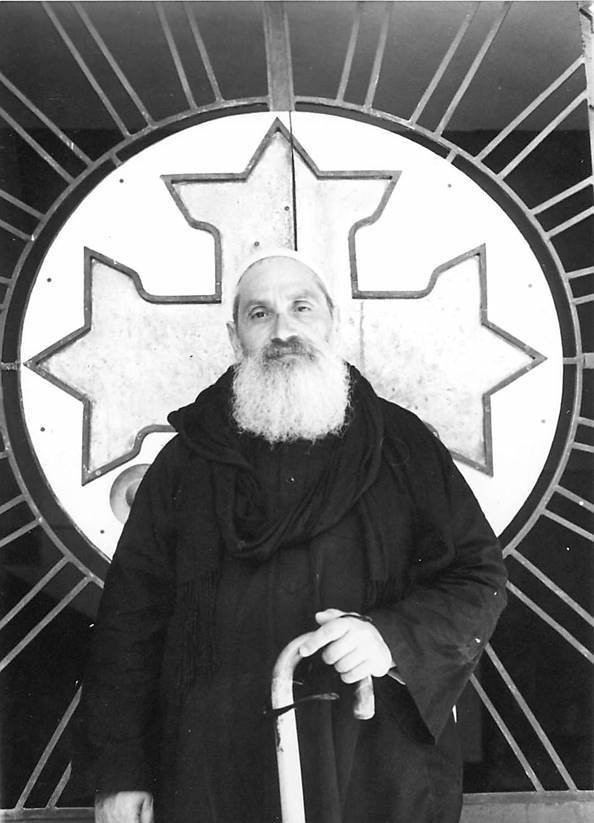 Father Matta al-Miskīn’s Commentary on Saint John’s Gospel (Introductory Volume)
Father Matta al-Miskīn’s Commentary on Saint John’s Gospel (Introductory Volume)
Thematic Considerations
2 The Truth
by Wagdy Samir
In the first article of this series, I provided a very brief biography of Father Matta. In this article, I focus on five points where he explores the theme of the truth in Saint John’s Gospel.
First, for Father Matta, “the Word of God is the complete revelation of the being and the nature of God (John 1:18).” The incarnate Word “dwelt among us, and we beheld his glory […] full of grace and truth […] and of his fullness we have all received […] (for) grace and truth came through Jesus Christ” (John 1:14-17). Through becoming flesh, Christ reconciles and sanctifies the world. During his trial, Christ tells Pilate, “For this cause I was born, and for this cause I have come to the world, that I should bear witness to the truth (that is to say to God who is the truth). Everyone who is of the truth hears my voice” (John 18:37). Whoever abides in the truth abides in God and “if the truth possesses the human being, it will free it from the bond of sin.”
Second, John’s Gospel provides a splendid expression of the truth by expressing that humankind has been granted to eat and drink the truth (John 6:55), that it might sanctify its body and enlighten its mind.
Third, the truth sanctifies humankind through the word: “You are already clean because of the word I have spoken to you” (John 15:3). This is because through the incarnation of the Word of God the world has been reconciled to God, making humankind “kings and priests.”
Fourth, the truth liberates humankind; freedom can only occur through Christ. By uttering “I am the way, the truth, and the life” (John 14:6), Christ reveals himself as the only means for humankind to attain God, but only if we wish to abide in him (John 8:31,26). Sin enslaves us. Christ condemned sin in the flesh, thus freeing humankind in truth. Yet, the truth is not a theoretical construct, for “he who does the truth comes to the light” (John 3:21). Instead, to attain the way of the truth is through “reverence, piety, the fear of God, and a sense of sincere repentance.”
Finally, Saint John’s Gospel relates the truth to Christ and the Spirit. This is shown where Christ tells his disciples, “When the Spirit of truth has come, he will guide you into all truth […] for he will take what is mine and declare it to you” (John 16:13-14). Thus, being filled with the knowledge of Christ is the same as being filled with the Holy Spirit and all the fullness of the truth. Saint John confirms this in 1 John 4:6, saying, “We are of God. He who knows God hears us […] by this we know the spirit of truth.” Therefore, the Holy Spirit fills humankind’s heart with the truth that it might abide in the truth and that the truth abide in it.
In summary, the true measure by which the Church is measured is that “we know we are of God […] that the Son of God has come and has given us an understanding, that we may know him who is true; and we are in him who is true, in his Son Jesus Christ. This is the true God and eternal life” (1 John 5:19-20). The Church thus must witness to the truth. In the next article, I explore the theme of witnessing in Saint John’s Gospel.
Source: Matta al-Miskīn, Introduction to the Commentary of the Gospel of St John: Study and Analysis (Al-Madkhal li-Sharḥ Injīl al-Qiddīs Yūḥanna: Dirāsah wa-Taḥlīl) (Cairo: Monastery of St Macarius, 1989) 106-112.
2 July 2022 © AIOCS
AIOCS LTD is a not-for-profit charitable organisation that promotes the study of Orthodox Christianity, Eastern and Oriental, in Australia
For donations, please go to https://www.paypal.com/paypalme/aiocsnet or contact us at info@aiocs.net

